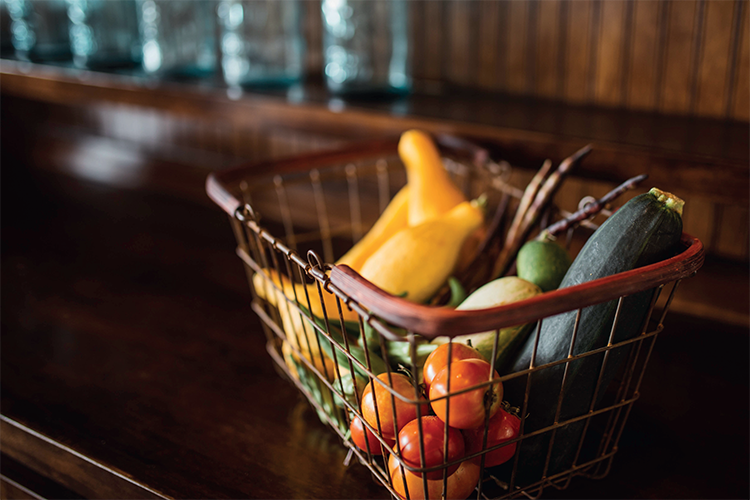
Increased visibility
Consumers are driving change across the spectrum of retail, with technological innovations gathering pace to support the desire for growing consumer demands – not only in areas like logistics where same day delivery is becoming increasingly common – but in the ability to understand more about where their goods have come from. No part of retail is changing more rapidly than food production, as consumers’ expectations of the traceability and ethics behind the making of the goods they purchase becomes a reality for producers today. At the same time the digitalization of compliance and audit legislation is taking center stage, as governments across the globe look to increase the visibility of the path from farm to fork.
Greater insights into ethical practices of businesses driving change
Driving consumer demand is the real need for understanding how and where our products are being grown, developed and produced. And that means understanding just as much about the ethical practices’ businesses are adhering to throughout the supply chain, as to how and where the product Simon Jones is manufactured or packaged.
Recent research conducted by not-for-profit organization FoodPrint1 shone a light on the most pressing of issues around corporate accountability for businesses, specifically those involved in large commodity food trading, such as coffee and chocolate. Smaller suppliers at the bottom of the supply chain have sadly been open to abuse for far too long, with no signs of huge change – as multinational businesses struggle to monitor issues like underage workforces. Consumers will increasingly make choices based on these issues, and as transparency and traceability becomes even more accessible due to progressing technologies, conscious consumer capitalism will take hold.
Across the supply chain, businesses will need to create accountability not only for the production, but for the real fundamentals of how their products have come to be, by the very people that collect the cocoa beans to those transporting them across the globe.
Digital transformation in food production is happening today
Traceability in food production has been a long-term issue that we could probably trace back to the stone ages. Ultimately media scares around the food we consume can be cited back to the mercury poisoning of fish in the 1970s and beyond, but the scale of disasters such as these can now move at a much faster pace, as use of technology goes beyond national boundaries with the internet and the use of social media bringing new meaning to exploding headlines.]
This consumer desire to follow the path from farm to fork, and businesses desire to manage this process, plus avoid supply chain crises means technology to support both is gathering pace. Today, as food regulators across the globe accelerate towards the digitalization of compliance monitoring and auditing reports, the industry faces an evolution in terms of traceability. Using digital processes will be the new norm, as the improvement of end-to- end visibility across the supply chain becomes standard.
Digital Identity takes traceability to a new level
Unique product identifiers have been a game changer for digitally tracking and tracing the life of a product, from point of origin to consumption. The Web of Things, where everyday items are integrated with the internet via unique identifiers and product digital identities in the cloud – means MOWI, one of the world’s largest producers of farmed Atlantic salmon, was one of the first food producers across the globe to deliver full digital visibility into the provenance of its MOWI branded salmon. Consumers of MOWI products now have complete insight into how MOWI operates and cares for its salmon, including origination, farming practices and harvesting – simply by scanning a code with their mobile phone.
Meeting the consumers’ growing demand for transparency, MOWI has taken control of the food chain to meet what it describes as the consumer mega trend, delivering on transparency and traceability. Having loyal brand advocates makes for a strong, successful business. As conscious capitalism becomes a reality, consumers will continue to want to know the origin of their food, from the supplier’s workforce to animal welfare and beyond. Those that supply the information can begin to rely on brand advocacy to stay engaged with their customers.
The supply chain of the future
There’s so much to be gained from digitally transforming the supply chain, from transparency and integrity through to competitive advantage and greater consumer engagement. But also the likes of reducing the costs associated with audit compliance, easily sharing data with eco system stakeholders like regulators, retailers and consumers and aggregating data, to applying intelligence and sharing data from and about every touchpoint in a product’s journey.
Those that don’t digitally transform will certainly be left behind.
 EVRYTHNG
EVRYTHNG
Simon Jones is Senior Vice President, Sales at EVRYTHNG. The EVRYTHNG Product Cloud™ helps global consumer product brands run their businesses differently by knowing what their products know. EVRYTHNG’s customers see and learn from each product’s journey, end to end, from factory to consumer and beyond. The EVRYTHNG Product Cloud™ links every product item to its Active Digital Identity™ on the web – joining-up product data at every point in the value chain for visibility, validation and real-time intelligence and to connect with people.
https://evrythng.com